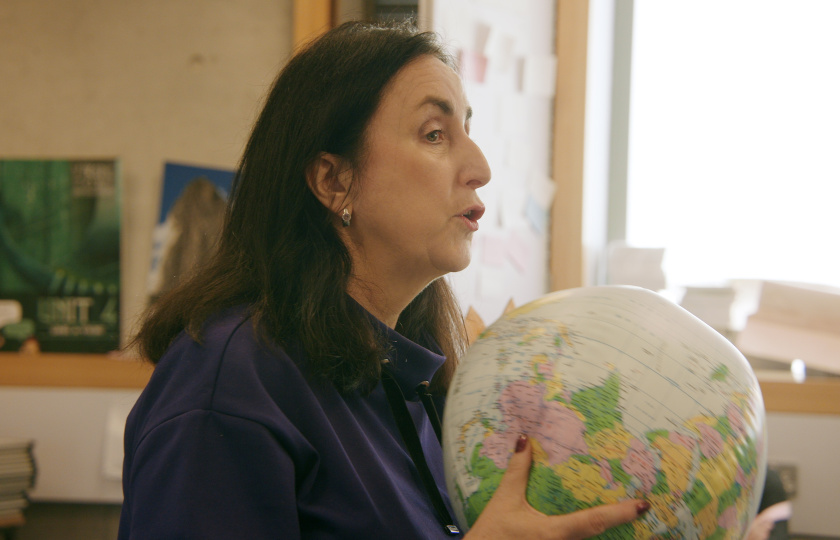M Ed in Education for Sustainability and Global Citizenship
Available: Full-time/Part-time
NFQ Level: 9*
Duration: 1 yr FT/2 yrs PT
Location: MIC Limerick
Delivery Mode:
Blended with workshops on campus Tuesday evenings and workshops delivered online on Saturdays.
Assessment:
Continuous assessment and dissertation.
- Programme Overview
- Programme Content
- Entry Requirements
- How to Apply
- Ask a Question
Programme Overview
The M Ed in Education for Sustainability and Global Citizenship is offered as a one-year, full-time and a two-year, part-time blended programme and offers a focus on climate justice, outdoor learning, biodiversity, intercultural education, peace studies and children’s agency.
Key Features
In response to current contemporary issues of climate change, a loss in biodiversity and challenges to world peace challenges for educators are immense. This new programme has been designed to equip educators with the pedagogies and theoretical frameworks to consider these issues. The programme is designed for those working in education including pre-school practitioners, primary and secondary teachers, and those working in non-formal education. The programme will focus on current challenges to sustainability including climate change, and loss of biodiversity. Through Global Citizenship Education (GCED) the programme aims to focus on agency empowering students of all ages to assume active roles, both locally and globally, in building more peaceful, tolerant, inclusive and secure societies.
The programme is designed for those working in education supporting them to integrate education for sustainability and global citizenship in their short term and long term programmes. The is a blended part-time programme over two years, with the on campus components taking place in Limerick. It also includes field trips to sites including the Burren, the Eco Village in Cloughjordan and the Aquarium in Salthill, Galway.

Benefits
Benefits of studying on this programme:
- Provides an introduction to the foundations, pedagogies, curriculum, research, and contemporary issues in Sustainability and Global Citizenship Education;
- Enables students to assess and critically analyse key concepts in sustainability and global citizenship education through critical dialogue, active pedagogies and a research project;
- Allows students to advocate for the promotion of education for sustainability and global citizenship education, both within and beyond schools;
- Provides an opportunity to critically reflect upon aspects of autobiographies to unpack values and experiences that impact on personal and professional approaches to living ethically and sustainably;
- Enables students to analyse and compare existing pedagogical approaches and resources for implementing education for sustainability and global citizenship education in the classroom, including local studies, social justice, intercultural education, outdoor education and ethical education;
- Facilitates the development of skills associated with education for sustainability and global citizenship, such as critical thinking, geo-literacy, visual literacy and debating; and,
- Gives an opportunity to identify and respond to the varied environmental and societal factors which impact on the implementation of education for sustainability and global citizenship in different contexts, including climate change, migration and racism.
Career Opportunities
The programme will allow graduates to enhance their current practice in education settings as well as diversify into leadership and education officer roles in sustainability and global education organisations.
Contact
Dr Anne Dolan, Programme Coordinator, M Ed in Sustainability and Global Citizenship
Taught Postgraduate Programmes (Faculty of Education)
NFQ Levels
*Graduate Certificates are Level 9 Minor Awards, Graduate Diplomas and Masters are Level 9 Major Awards and PhDs are Level 10 Major Awards on the National Framework of Qualifications (NFQ), awarded by the University of Limerick.
- Programme Overview
- Programme Content
- Entry Requirements
- How to Apply
- Ask a Question



